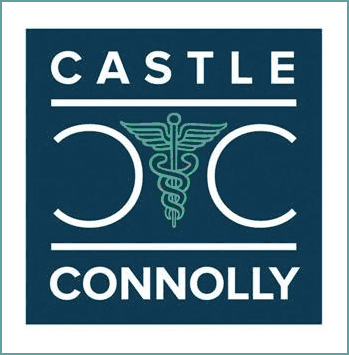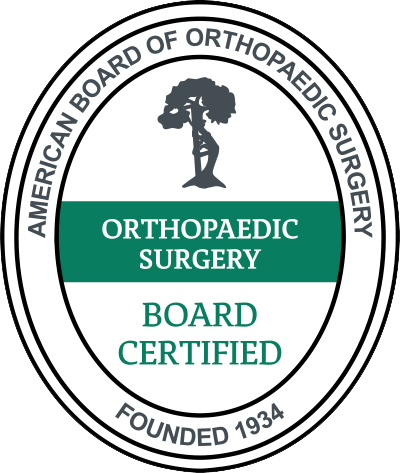Medically Reviewed by Dr. Jesse Hochkeppel, M.D.
Key Takeaways
- Emotional wellness is critical to recovery! A positive mindset, resilience, and emotional support can significantly speed up and improve post-surgical healing.
- Pain and stress affect both body and mind. Poorly managed pain and high stress levels can slow healing, weaken the immune system, increase inflammation, and amplify the perception of discomfort.
- Patients who stay optimistic, set realistic goals, and don’t give up after setbacks tend to follow rehab plans more consistently and recover more fully.
- Mindfulness, social support, goal-setting, and professional psychological support help patients manage emotions, reduce anxiety, and create a healthier recovery environment.
Surgery often comes with unexpected twists such as pain, limited mobility, and a disruption to daily life. These physical setbacks can shake your confidence and make recovery feel like an uphill climb. Yet, the path from setback to comeback does not rest solely on the surgeon’s skill or the physical therapy you follow. Emotional wellness plays a critical part in your recovery journey.
When your mind feels supported and strong, and you maintain a positive attitude, your body heals more smoothly and thoroughly. Optimism helps you stay motivated, engaged in your rehabilitation, and focused on progress rather than setbacks. Understanding this connection can change how you approach healing after surgery.
Understanding the Emotional Challenges after Surgery
Surgery is not just a medical event; it can affect your emotions too. Feelings like anxiety, frustration, and fear often show up right after an operation. These emotions come from uncertainty about the future, pain, or the sudden loss of independence.
The Psychological Impact of Physical Setbacks
Imagine waking up after surgery and realizing you cannot do simple tasks like before. For instance, after rotator cuff surgery, washing your hair, fastening bras, tucking in shirts, or reaching for high shelves can be a constant reminder of how much we take daily tasks for granted.
This physical limitation can be overwhelming. It often brings emotional distress, making people feel helpless or trapped. These thoughts can weigh heavily, slowing down motivation to push through rehab.
Pain Management as Part of Emotional Wellness
Pain is one of the most immediate and constant challenges after surgery, and it can shape your entire recovery experience. When pain is not well controlled, it can heighten stress, disrupt sleep, and make it harder to stay motivated in physical therapy. Over time, this can lead to a cycle where discomfort limits movement, reduced movement slows healing, and slower healing increases frustration and emotional strain.
At OrthoConnecticut, we take a comprehensive approach to pain management that supports both your physical comfort and your emotional well-being. This might include a combination of prescribed medications, physical therapy techniques, cold or heat therapy, and gentle stretching exercises. We also encourage non-medication strategies such as mindfulness, deep breathing, or guided imagery to help calm the nervous system and change the way your brain processes pain signals.
“Effective pain control is not just about comfort. When patients are able to manage their pain, they participate more fully in rehab, sleep better, and feel more in control of their recovery,” says Dr. Jesse Hochkeppel, Interventional Pain Specialist at OrthoConnecticut.
By addressing pain from multiple angles, patients can stay more engaged, maintain a positive mindset, and keep making progress toward their goals.
Role of Stress and Anxiety in Healing Delay
Stress is more than just a feeling; it is a whole body response that can significantly influence your ability to heal. When you are under stress, your body releases hormones like cortisol and adrenaline. In the short term, these chemicals are designed to help you respond to challenges, but over time, elevated stress hormones can suppress your immune system, slow the production of new cells, and impair blood flow to healing tissues. Research has shown that stress can delay wound closure, reduce collagen production, and increase inflammation, all of which can make recovery longer and more difficult.
Anxiety adds another layer of complexity. It can heighten your perception of pain, making discomfort feel more intense than it actually is. This is not “all in your head”; anxiety activates the same neural pathways that process physical pain, amplifying the signals your brain receives. Anxiety also disrupts sleep patterns, which is critical because deep, restorative sleep is when your body releases growth hormone, repairs tissues, and consolidates energy for healing. Without adequate rest, recovery slows, energy wanes, and mood declines, creating a cycle that can be difficult to break.
“Recovering from surgery is as much a mental process as it is a physical one,” says Dr. Teddy Wolfson, orthopedic surgeon at OrthoConnecticut. “When patients focus on their emotional well-being, they are often more engaged in rehab, experience less perceived pain, and see better overall outcomes.”
The Positive Role of Emotional Wellness in Post-Surgical Rehabilitation
Keeping your emotions in check is not about ignoring pain or pretending everything is fine. It is about nurturing a healthy mindset to support your body’s healing. Emotional wellness can make a real difference in how fast and well you bounce back.
Emotional resilience — the ability to face challenges without giving up — helps patients follow rehab programs more consistently, manage pain more effectively, and stay motivated despite setbacks. Positive feelings like hope, gratitude, or calm not only improve your mood but also support your immune system, reduce inflammation, and promote tissue repair.
Emotional Resilience and Its Effects on Recovery
Emotional resilience is the ability to face challenges without giving up. Patients who build this strength tend to follow their rehab programs closely. They handle pain better and don’t let setbacks discourage them from progressing.
Mind-Body Connection: How Positive Emotions Aid Healing
Positive feelings like hope, gratitude, or calm aren’t just good for your mood—they help your immune system work better. Studies have linked upbeat emotions with faster reduction in inflammation and improved tissue repair. When your mind relaxes, your body shifts into recovery mode.
Social Support and Emotional Wellness
You do not have to go through recovery alone. Family, friends, and support groups offer more than company; they can provide the emotional lift you need to heal. Having people who listen, check in, and offer encouragement helps keep your spirits up and your mindset focused on progress.
Social support plays a powerful role in recovery because it reduces feelings of isolation and helps you manage stress. Whether it is a friend who drives you to appointments, a family member who helps with daily tasks, or a support group where others share similar experiences, these connections can make the recovery process feel less overwhelming.
Engaging with supportive people can also improve motivation to follow rehabilitation plans. Knowing someone cares about your progress can inspire you to keep up with exercises, attend follow-up appointments, and celebrate small milestones along the way. Emotional wellness thrives in a positive, connected environment, and that environment can directly influence physical healing.
Practical Strategies to Foster Emotional Wellness during Recovery
Boosting emotional wellness during recovery doesn’t happen by chance. There are simple, practical steps patients and caregivers can take to smooth the healing process.
Incorporating Mindfulness and Relaxation Techniques
Practices like meditation, deep breathing, and guided imagery help calm the mind. They reduce stress hormones and ease feelings of anxiety or frustration. Taking even a few minutes a day can create a noticeable difference in mood and focus.
Setting Realistic Rehabilitation Goals
Breaking recovery into small, achievable steps helps keep motivation high. Instead of aiming to fully heal at once, celebrate little wins like sitting up unassisted or walking a few steps. These achievements build confidence and reduce feelings of overwhelm.
Seeking Professional Psychological Support
Sometimes, the emotional load after surgery feels too heavy to carry alone. Counselors, therapists, or support groups provide tools and understanding to manage these challenges. Seeking help early can prevent problems like depression or chronic anxiety from slowing down recovery.
Conclusion
Recovery after surgery is more than physical healing; it is a complete journey that involves your emotional health. At OrthoConnecticut, we understand that honoring your feelings and actively working on emotional wellness creates an environment where your body can heal better and faster. Moving from setback to comeback requires strength not just in muscles or bones, but in mindset too. That is why we encourage patients to prioritize emotional health alongside physical rehab, making the path to healing clearer, more effective, and more hopeful.



















